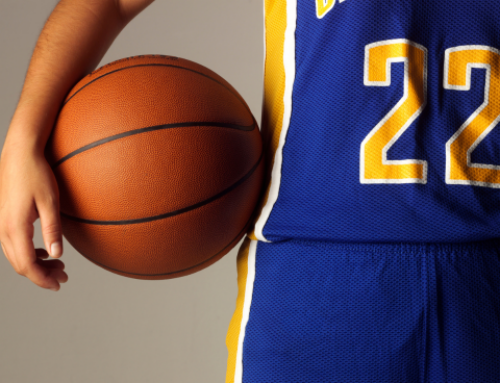Recruiting Objectives for High School Freshmen
If you are an incoming high school freshman, getting recruited is the probably the last thing on your mind. But college coaches have already begun an initial search for their 2018 recruitment class. (See STACK’s 2013 Recruiting Guide.)
Few commitments will be made between now and your junior year, but the earlier you start your personal recruiting process, the better shape you’ll be in senior year. With a finite number of scholarships and roster spots available, starting early is not only important but necessary. (Another good read: Maintain Staying Power in College Recruiting.)
Here are a few ways to get started during your freshman year.
Academics
College sports recruitment is based heavily on athletic performance. But it’s absolutely critical that student-athletes attend to their studies. Per NCAA rules, you must have at least a 2.0 GPA to earn an athletic scholarship to a Division I or II program. Athletes applying to Division III schools must meet the standards of the individual institution. Earning good grades as a freshman will set you up for success not only in your own high school, but in the national competition for college scholarships. (See Josh Smith on Motivation and the Importance of Academics.)
College Search
Most freshmen in high school are not thinking of college, but smart student-athletes are. Begin to develop a realistic approach to schools that will be a good fit for you as a student and an athlete. This should be a “living” document. Make changes as you go, but get set up for success by researching schools that’ll be good fits, not just dream schools.
Communication
Begin reaching out to college athletic programs to request information. Most college athletic programs accommodate inquiries on their websites. By filling out questionnaires, you will be getting on the radar screens of college coaches. Coaches are prohibited from calling prospects until later in their high school careers, but athletes can reach out to coaches in writing. Tailor your letters or emails to individual coaches, and be specific about what interests you about their programs. (See Six Ways College Coaches Express Interest.)
Performance
Take your performance seriously. College coaches want to see game film. If you’re not on varsity yet, participate fully in practices and training sessions. Athletes who don’t strive to improve will be passed over. Aim to be one percent better every day.
Have Fun
High school goes by quickly, and student-athletes should enjoy themselves. Its important to prepare for college early, but remember to have fun before you get there.
RECOMMENDED FOR YOU
MOST POPULAR
Recruiting Objectives for High School Freshmen
If you are an incoming high school freshman, getting recruited is the probably the last thing on your mind. But college coaches have already begun an initial search for their 2018 recruitment class. (See STACK’s 2013 Recruiting Guide.)
Few commitments will be made between now and your junior year, but the earlier you start your personal recruiting process, the better shape you’ll be in senior year. With a finite number of scholarships and roster spots available, starting early is not only important but necessary. (Another good read: Maintain Staying Power in College Recruiting.)
Here are a few ways to get started during your freshman year.
Academics
College sports recruitment is based heavily on athletic performance. But it’s absolutely critical that student-athletes attend to their studies. Per NCAA rules, you must have at least a 2.0 GPA to earn an athletic scholarship to a Division I or II program. Athletes applying to Division III schools must meet the standards of the individual institution. Earning good grades as a freshman will set you up for success not only in your own high school, but in the national competition for college scholarships. (See Josh Smith on Motivation and the Importance of Academics.)
College Search
Most freshmen in high school are not thinking of college, but smart student-athletes are. Begin to develop a realistic approach to schools that will be a good fit for you as a student and an athlete. This should be a “living” document. Make changes as you go, but get set up for success by researching schools that’ll be good fits, not just dream schools.
Communication
Begin reaching out to college athletic programs to request information. Most college athletic programs accommodate inquiries on their websites. By filling out questionnaires, you will be getting on the radar screens of college coaches. Coaches are prohibited from calling prospects until later in their high school careers, but athletes can reach out to coaches in writing. Tailor your letters or emails to individual coaches, and be specific about what interests you about their programs. (See Six Ways College Coaches Express Interest.)
Performance
Take your performance seriously. College coaches want to see game film. If you’re not on varsity yet, participate fully in practices and training sessions. Athletes who don’t strive to improve will be passed over. Aim to be one percent better every day.
Have Fun
High school goes by quickly, and student-athletes should enjoy themselves. Its important to prepare for college early, but remember to have fun before you get there.
RECOMMENDED FOR YOU
Create A Free Recruiting Profile Today!
CaptainU helps athletes & parents not only be proactive but also to manage and take control of their entire recruiting journey.












